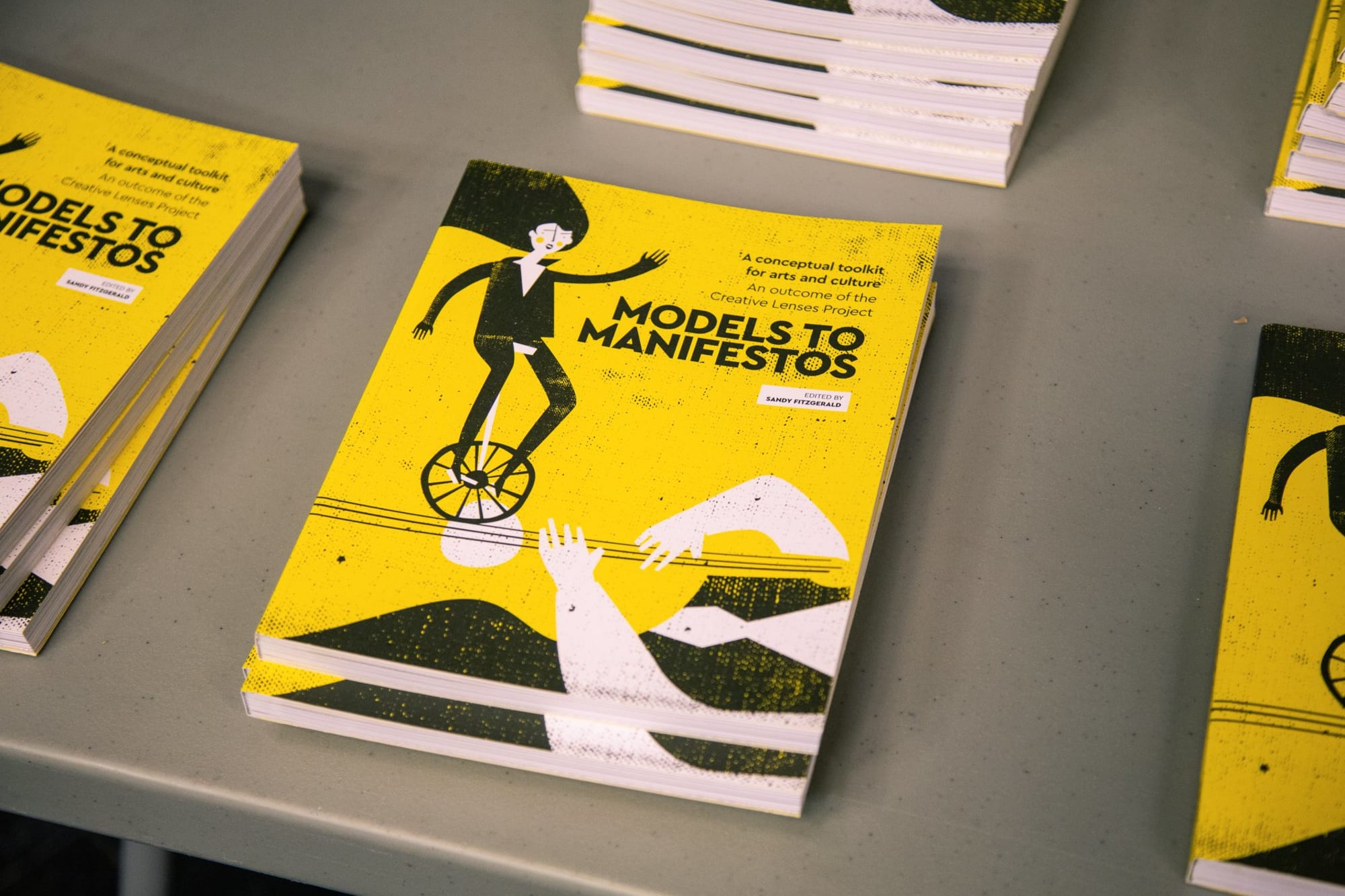The project set out to ask difficult questions about the relationship between financial sustainability and social, artistic or cultural objectives. The assumption in the EU’s cultural policies appeared to be that the answer to the issue of financial sustainability would come through a transformation in business models.
Partners
Funded by the Creative Europe Programme of the European Union, the project brought together some of Europe’s leading cultural organisations, networks, universities, incubators for ‘creative business’ and consultants with experience of the sector. Some were seeking to make change and support the process of change; others were interested in understanding the causes and consequences of the type of change occurring in the cultural sector, and others were interested in reflecting on the role of policy interventions in shaping the nature of change.
For more information about the project and details of all the partners, visit the Creative Lenses website.
As a specialist creative university, UAL’s role in the consortium was to lead the research and evaluation. This resulted in a series of working papers, case studies, a report, the final project evaluation and contributions to all of the events organised by the project
Current UAL staff involved in the project were:
- Lucy Kimbell, Research Lead, Professor of Contemporary Design Practices, Central Saint Martins
- Patrycja Kaszynska, Senior Research Fellow
- Maureen Salmon, Researcher and Senior Lecturer, London College of Communication
- Jerneja Rebernak Project and Partnerships Manager: Transforming Collections: Reimagining Art, Nation and Heritage
Former staff in the team were:
- Ian King, Researcher
- Bethany Rex, Researcher
- Sarah Rhodes, Researcher
Project findings
To find out about the project journey, research design and findings, you can read a summary here or download the final report in full: Business Models for Arts and Cultural Organisations: Research Findings from Creative Lenses [PDF, 3.9mb].
The key takeaways can be summarised as follows:
- The idea of the ‘business model’ is valuable to arts and cultural organisations as an imperfect tool to guide organisational development. However, business models need to adapt to a changing external environment, and business modelling should be a collaborative process involving funding bodies, government departments, arts and cultural organisations and audiences.
- Business modelling demonstrates the interdependence of cultural organisations on the wider financial and political context for their sustainability and survival. For business models to become more sustainable (financially and otherwise), more systemic change is necessary.
- Business modelling is an underdeveloped practice within arts and cultural organisations. Applying some creativity to the task of designing business models from the bottom-up would grant practitioners more agency to design business models that respond to different contexts and values, not just financial sustainability.
Outputs
- Final project report: ‘Business Models for Arts and Cultural Organisations: Research Findings from Creative Lenses’, by Lucy Kimbell, Patrycja Kaszynska, and Bethany Rex.
- Several UAL staff also made contributions to Models to Manifestos: A conceptual toolkit for arts and culture [PDF, 6.8mb], a publication resulting from the project edited by Sandy Fitzgerald.
- Working Papers:
- 'New Business Models’ for Cultural Organisations: A Critical Literature Review’ by Bethany Rex (2019)
- ‘Insights from Management Literature to Understand. Business Models in Arts and Cultural Organisations’ by Lucy Kimbell(2019), exploring how business models are not about money-making along but about combining resources to create value, alongside partners, audiences, and funders.
- ‘Modelling Shared Value and Mediating Values: Describing Business Models in Performing Arts Organisations and Cultural Venues’ by Lucy Kimbell (2019) summarising the team’s findings about the characteristics of business models.
- Case studies exploring the changes made by eight of the arts organisations involved in the project, prompted by thinking about their business models and the challenges they encountered as part of the process:
- Kaapeli by Lucy Kimbell and Sarah Rhodes
- Manifatture Knos by Lucy Kimbell and Sarah Rhodes
- ODC Ensemble by Lucy Kimbell and Bethany Rex
- Patricia Pardo Company by Lucy Kimbell and Sarah Rhodes
- Projects Ingenu by Lucy Kimbell and Sarah Rhodes
- P60 by Lucy Kimbell and Bethany Rex.
- Truc Sphérique by Lucy Kimbell and Bethany Rex
- Village Underground by Lucy Kimbell and Bethany Rex.
- Creative Lenses Forum 'Innovative Business Models in the Arts' in London on 13 October 2016 – view programme and presentations on FigShare.
